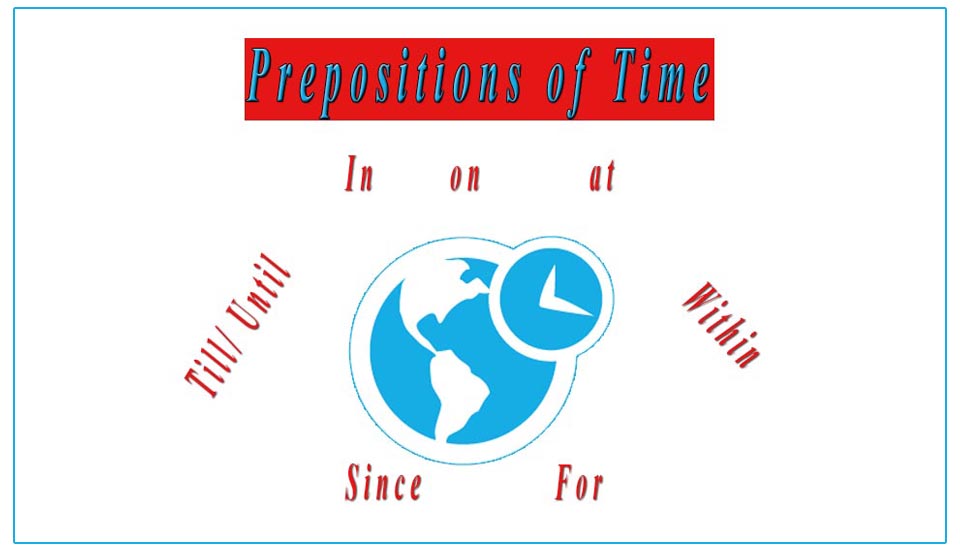Prepositions of Time
Prepositions of time are used to show relationship between nouns and discuss specific time period such as a date, days of week, month etc. Prepositions of time are the same as prepositions of place, however they are used in different ways, as they always discuss time rather than place. In this lesson we will focus on common prepositions of time in detail.

Prepositions of Time
1. The preposition (On)
Days of week (Sunday, Friday etc.)
• The center will remain open on Sunday.
• On Friday morning.
Weekend (American English)
• We will go camping on the weekend.
With specific dates or days
• On 28 March 2016
• On New Year’s Day.
• On my birthday.
2. The preposition (In)
Month/ seasons/ year
• He graduated in February, in autumn, in 2015.
Decades/ centuries
• In the sixties
• We are living in the 21st century.
General times of day: Morning/ evening/ afternoon
• I have a computer class in the afternoon.
Period of time
• You will master your English in three years.
• The match will be started in a few minutes.
• I didn’t know about prepositions of time in the past.
3. The preposition (At)
Night
• They are having a party at night.
Weekend (British English)
• I will hang out with my friends at the weekend.
For exact or a particular time
The classes begin at 4: 30 this afternoon.
With expressions (at Christmas/ at the moment/ at present/ at the same time/ at the age of)
• We are talking about prepositions of time at the moment.
• My father will bring a present at Christmas.
4. The preposition (Since)
From a certain point of time till now (past till now)
• I have been teaching English at this academy since 2015.
5. The preposition (For)
For a period of time expressing duration
• For six years.
• For two weeks.
• For three hours.
6. The preposition (Ago)
A certain time in the past / back in time from the present
• Australia were the champions in world T20 four years ago.
7. The preposition (Before)
Earlier than a certain point of time
• Before 2015.
• What would you do before noon?
8. The prepositions (Till/ Until)
• I was working till 12 PM.
• The match is delayed until the rain stops.
9. The preposition (During)
We use during + noun to say when something happens
• During the meeting.
• During the match.
10. The preposition (By)
Not later than, at or before
• We will reach there by three o’clock.
• By Thursday.
11. The preposition (Up to)
Not more than a special time
• Up to 7 hours a day.
12. The preposition (Within)
During a period of time
• Within a day.

1 comment
This is very helpful in learning the language